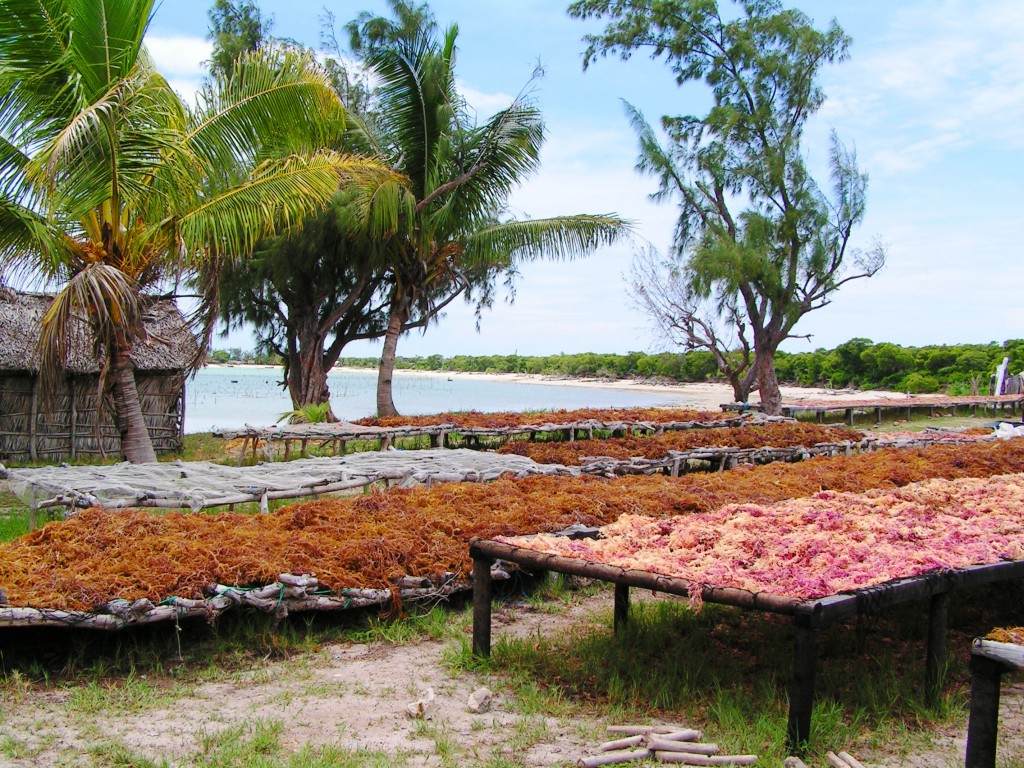by Fran Humber, Conservation Programmes Manager, London
Working from the London office of Blue Ventures, it can be easy to forget, underneath the piles of emails and reports, how the projects our colleagues in the field work hard on actually impact local communities. Although we get to read words upon words on how our projects are keeping up with their objectives, it’s often not until you see the project for yourself that you understand what all those words really mean.
For the last couple of weeks I have been visiting southwest Madagascar and have had the opportunity to get to grips with our community-based aquaculture project. The project provides household farms with the materials to start their own sea cucumber or seaweed farm whilst providing technical assistance. Since I last visited the project over a year ago the farms are now starting to regularly turn their own profits, in particular the sea cucumber farms, where this year’s sales will be the largest yet. A portion of the profits are then being reinvested into more juvenile sea cucumbers for future sales or to purchase zebu, rice and other essentials.
However, it’s not only households that are farming sea cucumbers. The local school in the village of Tampolove also have their own sea cucumber farm and the profits from their sales help to pay the children’s school fees. Under the watchful eye of their teacher, Mme. Clarisse, the children also help with the upkeep of their sea cucumber farm. During a short break in lessons I witness 40 children scrubbing their sea cucumber pens free of algae and removing crabs, and it’s no surprise that theirs it the best maintained farm in the region. With the children’s’ remaining schools fees now covered by the sale of sea cucumbers from their farm, there’s a clear incentive to make sure as many sea cucumbers are sold as possible.
It is with this in mind that as I return to my desk in London, I also have a clear incentive to stride through those piles of emails and reports.



